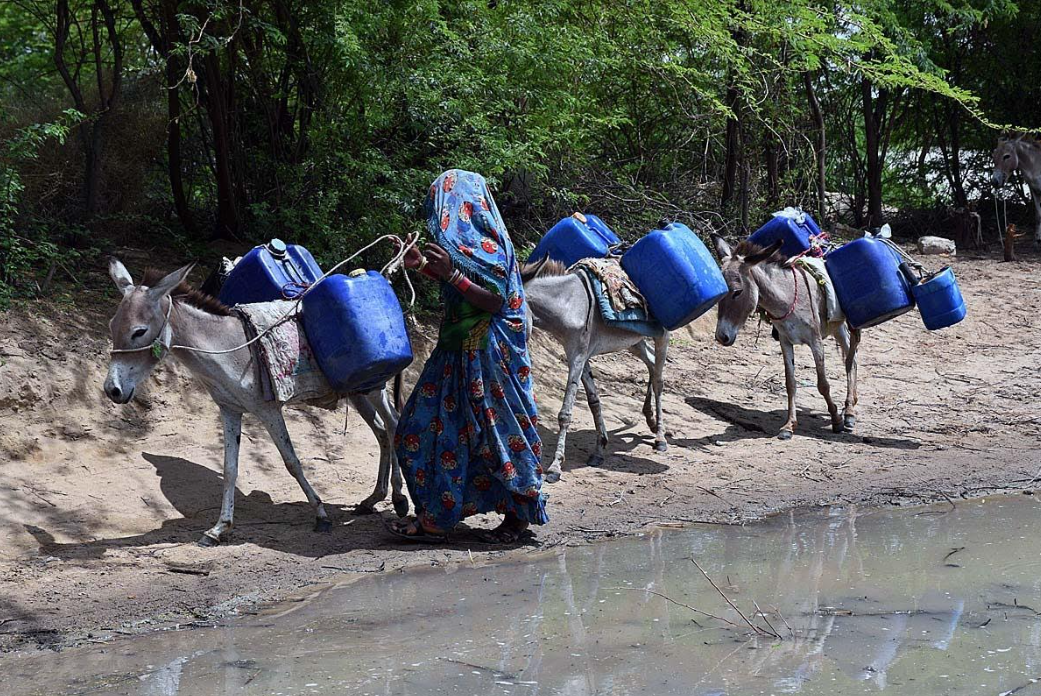Pakistan In 21st Century
Asem Mustafa Awan
Islamabad: This is 21 century, and it is Pakistan that holds many distinctive positions in the world.
A nation of 220 million and over, offers a diverse climate with extreme temperatures, both high and low. It holds many records globally, depicting wide raging talents with the foremost nuclear capabilities that are with only a select few countries globally.
The woman with water drums on a donkey is an inhabitant of Pakistan and represents 50 per cent or more of the total population of the country. She also forms part of the over 50 per cent that live below the poverty line.
Leaving the cities in the ‘land of the pure’ be it anywhere after a few kilometers this scene can be witnessed frequently: men, women, and children, both young and old, carrying water bottles, both filled and unfilled.
The cities have water filtration plants with long queues of drums and the public waiting patiently for the water to get open, and that water is not guaranteed to be safe and fit for drinking.
The statistics on waterborne diseases and the data available show that over 80 per cent of the public is denied clean drinking water, and people suffering from waterborne diseases are on the rise.
It is on record that a political bigwig, while visiting a slum to pander to the feelings of the masses, made promises, and one slum dweller offered the ‘stalwart’ a glass of murky water, which was denied point blank. The slum dweller clearly told the politician, this is what we are drinking, and should you care, please have a sip.
The commoner in the city starts the day after waking up with the sole mission to get water from the filtration plant, not knowing if the filters are clean or not, but since the tap water is not fit for drinking, the only option is the facility that is at different places and operative at certain times.
The woman in the picture with the donkeys is collecting water for her family and has a long distance to travel as carrying these drums is beyond her capacity.
Women in Pakistan, particularly outside of cities, which form over 80 per cent of rural life, are entrusted with the chore of fetching water, and in different areas of Pakistan, the distance and effort vary from individual to individual.
Those who carried the water on their heads after some time lost their hair owing to the weight of the pitcher and friction, but that distance is only a few miles, while the woman steering the donkeys in Tando Hyder, a village in Hyderabad, has many miles to cover to reach her destination.
The acute shortage of water forced people to go for hand pumps and boring machines as water forms life, which is sadly denied to the majority.
The dams for storing water were politicised and millions have suffered in the past, and millions more will suffer. Life in the land of the pure is too cheap and unaccounted for. The landlords in Sindh are accused of diverting flood water by breaching the dams did anyone held them accountable for their actions? This stays unchecked the poor will continue to live in and die in misery as their lives don’t matter and they themselves don’t matter.The writer is a journalist based in Islamabad and writes on a wide range of issues.


Comments are closed.